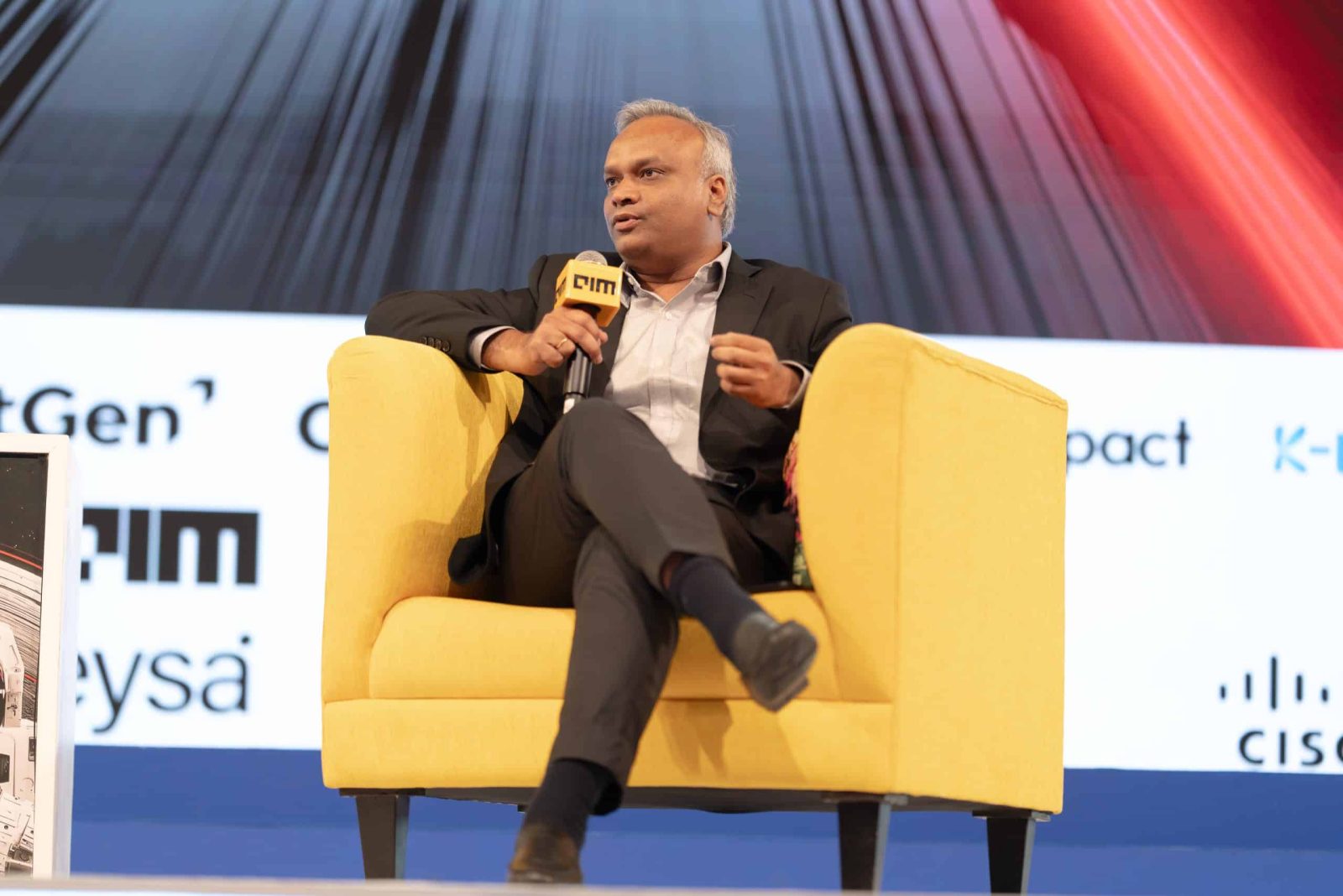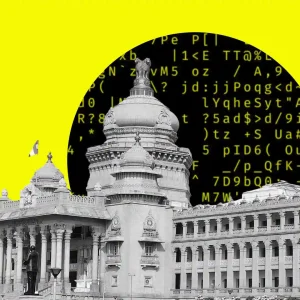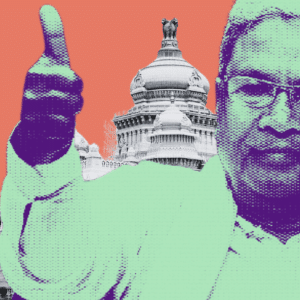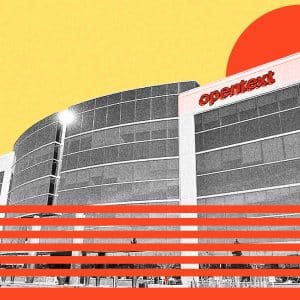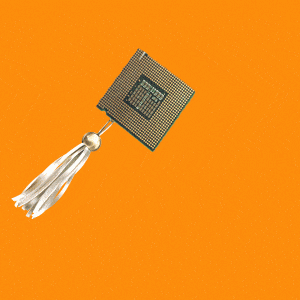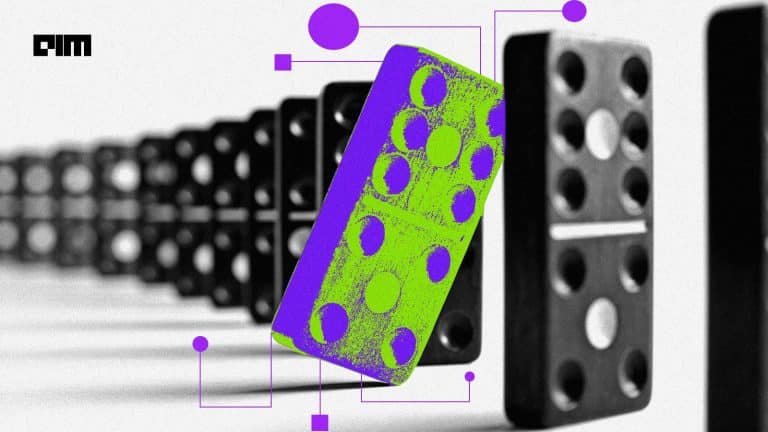The story of artificial intelligence in Karnataka is usually told through Bengaluru’s glass towers, unicorns, and global capability centres (GCCs). But Priyank Kharge, the state’s minister for electronics, IT, BT, and rural development and panchayat raj, wants to broaden the lens. At Cypher 2025, India’s largest AI expo, he outlined a future where AI is not just about high-tech exports but about solving everyday problems in panchayat offices, flood-hit farms, and cattle sheds.
“Every time there is a flood, the crop losses are huge in rural areas,” Kharge said. “We get a lot of manipulated photos claiming that there has been a huge crop loss. So we are using AI to detect whether the image has been tampered with. That way, we will be able to give the right farmers the right compensation.”
This use case may look simple compared with generative models or self-driving cars, but for farmers awaiting relief, the stakes are immediate. Trust in governance and food security depend on getting such systems right.
The minister also cited Karnataka’s experiment with livestock tracking. “Muscle printing the nose of cattle has different prints, just like fingerprints,” he said. “We are using AI and machine learning to see how we can… keep count of livestock.”
By creating a database that recognises unique nose patterns, the state hopes to prevent under-reporting or false claims. The benefits could stretch across subsidies, veterinary care, and even export regulation. Kharge framed it as governance innovation as much as technological advancement.
Rural AI with Guardrails
Kharge is clear that AI adoption cannot be rushed across all contexts. “I would be a little more cautious (on AI) and ensure that I push AI across different demographies and socio-economic backgrounds,” he said. “We don’t want to push it in all directions as of now. But yes, AI is important for all, especially if we’re able to cut down processes in governance.”
The minister further elaborated, stating that Karnataka already has a strong digital foundation to build upon. More than 600 citizen services are available online, and rural internet penetration is over 90%. The state is experimenting with chat-style services in local languages.
Yet Kharge warned against leaving the masses behind: “We don’t want to do with AI what happened with YouTube, it took 18 years to reach my mother. We must make sure AI reaches the masses faster, but responsibly.”
Startups as Partners in Governance
The minister said that startups can play a central role in making AI useful for governance, provided their work scales. The government’s ‘Grand Challenges’ programme has become one such bridge. Structured problem statements, covering areas such as water, waste, and mobility, are thrown open to innovators.
“We had more than 60 startups that participated,” Kharge said. “We got around 15 startups involved with us, and over seven to eight of them are actually working to solve the problem for the government.”
For young companies, this provides credibility and a chance to pilot solutions with government departments. For the state, it ensures that innovation remains anchored in civic needs rather than abstract technology. “Nothing stops us from adopting private sector solutions if they work,” Kharge said. “Through the Grand Challenges, we are building a bridge where startups can become the government’s first partners, whether it is in healthcare, education, or sustainability.”
Karnataka also funds startups directly. According to Kharge, the state has already supported 1,068 ventures with grants of ₹50 lakh each. This year’s Elevate programme drew 1,700 applications, reflecting strong demand for government-backed support.
Beyond Bengaluru
For Kharge, spreading innovation beyond the capital is both a necessity and a strategy. “Beyond Bengaluru” has become a flagship policy, offering tax incentives and funding only to those setting up outside the city.
“All the subsidies, all the tax incentives, everything… kicks in if you’re investing beyond Bengaluru, whether it’s in Belagavi, Ballari, Manipal, Mysuru, Mandya, anywhere,” he said.
The push is already showing results. Mysuru exported close to ₹4,000-5,000 crore in IT services last year. Hubballi-Dharwad reported around ₹2,000 crore, while Mangaluru generated close to ₹3,000 crore. The state is also rolling out the Deep Local Economic Acceleration Programme to establish more incubators, accelerators, and industrial hubs in tier-2 and tier-3 cities.
“Bengaluru became Bengaluru in three decades,” Kharge said. “We want to set up another Bengaluru in Mysuru or Mangaluru, but it will take time. We are heavily focused on that.”
GCC Powerhouse
While rural AI and Beyond Bengaluru dominate his vision, Kharge is also keen to underline Karnataka’s global strength. “The global capability centres are becoming bigger and bigger. About 47% of all GCCs that are in India are in Karnataka,” he said.
The state is home to more than 850 GCCs, houses over 20,000 registered startups, and hosts 45 unicorns. Its IT exports last year touched ₹4.5 lakh crore. “Out of 110 unicorns, more than 45 are in my state,” Kharge said. “More than 30% of them are into deep tech.”
Karnataka also accounted for more than 45% of the 77 million square feet of office leasing across India last year. In the first half of this year alone, it saw nearly 30 million square feet absorbed, nearly ten times the volume of its closest rival, Maharashtra.
Infrastructure and Compute Challenges
Kharge admitted that infrastructure remains Bengaluru’s biggest pain point. Congested roads and civic strain are pushing talent outward. The state has allocated ₹7,000 crore for city infrastructure this year and is building metro extensions, tunnels, and new corridors. But Kharge said a fairer share of tax revenues from the Centre is essential. “For every ₹100 Karnataka pays, I get back 12 rupees,” he said. “Give me 25 rupees, give me 50 rupees, I will build better roads and create more jobs.”
On the technology side, the state is lobbying for affordable compute. “Technology is not a problem. Technology infrastructure is,” Kharge said, pointing to GPU shortages as a barrier. Karnataka has requested a role in national AI compute initiatives to accelerate access for its startup ecosystem.
Guarding Against AI Misuse
Kharge also addressed the risks of AI misuse, from misinformation to deepfakes. Karnataka is preparing a state-level misinformation bill to curb the dissemination of false content, following reviews by the legal and home departments. “Misinformation, malinformation, disinformation, and fake news… this is something that the government is extremely keen on addressing,” he said.
The state is studying regulatory approaches in the EU and the US to craft its own framework for ethical AI use. “Nobody likes to be regulated,” Kharge said. “But if you don’t regulate certain aspects of AI, it’s going to be counterproductive.”
A Balancing Act
Kharge’s message at Cypher 2025 was consistent: Karnataka’s AI story is not only about scale and exports but also about impact and inclusivity. AI in rural governance may not make global headlines, but it makes the difference between fair compensation and loss for farmers, or between accurate livestock counts and flawed subsidies.
The minister positioned Beyond Bengaluru as the next frontier. Innovation, he argued, must spread to smaller cities, supported by infrastructure, compute, and policies that keep startups anchored to real problems.
“Technology is not a problem. Technology infrastructure is,” Kharge said. “What we need is to apply AI where it delivers immediate value, support startups with policy, and make compute affordable for all.”

